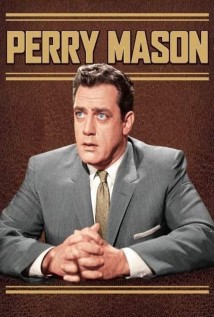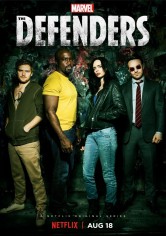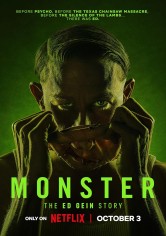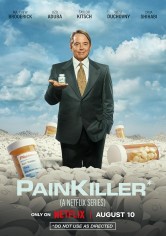
The cases of a master criminal defense attorney, handling the most difficult of cases in the aid of the innocent.
Stars: Raymond Burr, Barbara Hale and William Hopper
Full Cast: Ray Collins, William Talman, Don Anderson, Lee Miller, Wesley Lau, George E. Stone, S. John Launer, Kenneth MacDonald, Bert Stevens, Richard Anderson, Michael Fox, Willis Bouchey
Episode Guide
Season 9
May 22, 1966Episode 30 The Case of the Final Fadeout
May 15, 1966Episode 29 The Case of the Crafty Kidnapper
May 1, 1966Episode 28 The Case of the Positive Negative
April 24, 1966Episode 27 The Case of the Misguided Model
April 17, 1966Episode 26 The Case of the Dead Ringer
April 3, 1966Episode 25 The Case of the Unwelcome Well
March 27, 1966Episode 24 The Case of the Fanciful Frail
March 20, 1966Episode 23 The Case of the Tsarina's Tiara
March 13, 1966Episode 22 The Case of the Avenging Angel
February 27, 1966Episode 21 The Case of the Twice-Told Twist
February 20, 1966Episode 20 The Case of the Scarlet Scandal
February 13, 1966Episode 19 The Case of the Sausalito Sunrise
January 30, 1966Episode 18 The Case of the Golfer's Gambit
January 23, 1966Episode 17 The Case of the Vanishing Victim
January 16, 1966Episode 16 The Case of the Midnight Howler
January 9, 1966Episode 15 The Case of the Bogus Buccaneers
December 19, 1965Episode 14 The Case of the Golden Girls
December 12, 1965Episode 13 The Case of the Baffling Bug
November 28, 1965Episode 12 The Case of the Fugitive Fraulein
November 21, 1965Episode 11 The Case of the Silent Six
November 14, 1965Episode 10 The Case of the Runaway Racer
November 7, 1965Episode 9 The Case of the Wrathful Wraith
October 31, 1965Episode 8 The Case of the Twelfth Wildcat
October 24, 1965Episode 7 The Case of the Hasty Honeymooner
October 17, 1965Episode 6 The Case of the Carefree Coronary
October 10, 1965Episode 5 The Case of the Impetuous Imp
October 3, 1965Episode 4 The Case of the Cheating Chancellor
September 26, 1965Episode 3 The Case of the Candy Queen
September 19, 1965Episode 2 The Case of the Fatal Fortune
September 12, 1965Episode 1 The Case of the Laughing Lady
Season 8
Season 7
Season 6
Season 5
Season 4
Season 3
Season 2
Season 1
Best Perry Mason Episodes
Top 20 (Ranked)
November 14, 1959 9.0 280 votesS3E6 The Case of Paul Drake's Dilemma
9.0 280 votesS3E6 The Case of Paul Drake's Dilemma
October 17, 1963 9.0 272 votesS7E4 The Case of the Deadly Verdict
9.0 272 votesS7E4 The Case of the Deadly Verdict
May 22, 1966 8.9 319 votesS9E30 The Case of the Final Fadeout
8.9 319 votesS9E30 The Case of the Final Fadeout
September 26, 1963 8.9 237 votesS7E1 The Case of the Nebulous Nephew
8.9 237 votesS7E1 The Case of the Nebulous Nephew
November 29, 1962 8.9 234 votesS6E9 The Case of the Weary Watchdog
8.9 234 votesS6E9 The Case of the Weary Watchdog
January 6, 1962 8.9 210 votesS5E16 The Case of the Shapely Shadow
8.9 210 votesS5E16 The Case of the Shapely Shadow
December 14, 1957 8.7 407 votesS1E13 The Case of the Moth-Eaten Mink
8.7 407 votesS1E13 The Case of the Moth-Eaten Mink
November 19, 1960 8.7 247 votesS4E9 The Case of the Nine Dolls
8.7 247 votesS4E9 The Case of the Nine Dolls
January 23, 1960 8.7 236 votesS3E13 The Case of the Wayward Wife
8.7 236 votesS3E13 The Case of the Wayward Wife
December 31, 1964 8.7 178 votesS8E14 The Case of the Ruinous Road
8.7 178 votesS8E14 The Case of the Ruinous Road
January 31, 1963 8.6 494 votesS6E16 The Case of Constant Doyle
8.6 494 votesS6E16 The Case of Constant Doyle
April 26, 1958 8.6 315 votesS1E30 The Case of the Screaming Woman
8.6 315 votesS1E30 The Case of the Screaming Woman
September 27, 1958 8.6 273 votesS2E2 The Case of the Lucky Loser
8.6 273 votesS2E2 The Case of the Lucky Loser
October 1, 1960 8.6 241 votesS4E3 The Case of the Ill-Fated Faker
8.6 241 votesS4E3 The Case of the Ill-Fated Faker
January 2, 1960 8.6 220 votesS3E11 The Case of the Violent Village
8.6 220 votesS3E11 The Case of the Violent Village
December 16, 1961 8.6 208 votesS5E14 The Case of the Unwelcome Bride
8.6 208 votesS5E14 The Case of the Unwelcome Bride
February 3, 1962 8.6 205 votesS5E19 The Case of the Glamorous Ghost
8.6 205 votesS5E19 The Case of the Glamorous Ghost
December 9, 1961 8.6 190 votesS5E13 The Case of the Renegade Refugee
8.6 190 votesS5E13 The Case of the Renegade Refugee
October 17, 1965 8.6 189 votesS9E6 The Case of the Carefree Coronary
8.6 189 votesS9E6 The Case of the Carefree Coronary
February 24, 1962 8.6 186 votesS5E21 The Case of the Mystified Miner
8.6 186 votesS5E21 The Case of the Mystified Miner




User Reviews
Watchseries; The "Perry Mason" character, as developed by Erle Stanley Gardner in the early 1930s, was a "fighter", in the author's words; like Gardner himself, a successful and ingenious lawyer, the fictional lawyer-detective enjoyed seeking out the truth in the field--whether he was finding a body, bending a law in order to fight for his client or testing an hypothesis--as much as he enjoyed arguing a case within the arena of a courtroom. Immensely popular from the beginning, the character was never changed by Gardner. And although the series on television was subtly altered in many ways, and enjoyed format alterations, I assert that nothing essential was ever altered about Mason nor his main "foils". At the beginning, the cast consisted of Raymond Burr as Mason, William Hopper as his detective pal Paul Drake, pretty Barbara Hale as his right-hand girl and secretary Della Street, William Talman as Hamilton Burger his chief courtroom enemy, and Ray Collins as Lt. Arthur Tragg of Homicide. Cases began in many different ways; chiefly with a future accused murderer being victimized by someone else, or with a client coming to ask Mason's help. Had the show's writers found a way to state a categorical purpose for Mason to explain why he was taking each case, the fine power of these dramatic stories could have been increased. But the chief quality of the interesting narratives I suggest was rather, usually, watching Mason trying many ways to find out the truth about what had been done in some situation in order to prove the innocence of his client of a murder; that, plus the many characters who people over 250 separate episodes. Many fine writers and directors created stories for "Perry Mason"; some episodes were adaptations of Mason novels. And with Gardner working closely with executive producer Gail Patrick Jackson, the original entries were held strictly and successfully to the author's conception of the character. Talents as famous as Jack Arnold, Earl Bellamy, László Benedek, script consultant Arthur Marks, Arthur Hiller, Ted Post, Vincent Mceveety, Robert Sparr, Gerd Oswald, Andrew Mclaglen and Christian Nyby were in charge of the "Mason" cameras; writers for the series included True Boardman, Robert C. Dennis, John Elliotte, Jackson Gillis, Laurence Louis Goldman, Seeleg Lester, Orville H, Hampton, Laurence Marks, Bob and Esther Mitchell Jonathan Latimer, Samuel Newman, Helen Nielsen, Mann Rubin, Sy Salkowitz, Stirling Silliphant, Barry Trivers, Al C. Ward, Maurice Zimm and Gene Wang, among others. Mason employed a young lawyer, played by Karl Held, for one season; Richard Anderson, Wesley Lau, Dan Tobin and Lee Miller were regulars for varying lengths of time. But the glory of the series, i assert, was its guest stars. Apart from younger actors chosen for their looks, almost every other part was well-cast and the enactors successful in creating a character. The producers also used only about ten judges, notably S. John Launder, Willis Bouchey, John Gallaudet, Kenneth Macdonald and one female jurist. But the courtrooms in which Mason appeared ranged all over the state of California, from a military tribunal to small town courts to the great Los Angeles arena. Almost as numerous were the sites where Mason and Drake discovered clues, bodies and trouble; because Mason was a fighting man at heart, his favorite ploy was to plant false evidence to force overworked police to investigate some aspect of the case, to meet with someone in order to goad them into revealing something and to
The "Perry Mason" character, as developed by Erle Stanley Gardner in the early 1930s, was a "fighter", in the author's words; like Gardner himself, a successful and ingenious lawyer, the fictional lawyer-detective enjoyed seeking out the truth in the field--whether he was finding a body, bending a law in order to fight for his client or testing an hypothesis--as much as he enjoyed arguing a case within the arena of a courtroom. Immensely popular from the beginning, the character was never changed by Gardner. And although the series on television was subtly altered in many ways, and enjoyed format alterations, I assert that nothing essential was ever altered about Mason nor his main "foils". At the beginning, the cast consisted of Raymond Burr as Mason, William Hopper as his detective pal Paul Drake, pretty Barbara Hale as his right-hand girl and secretary Della Street, William Talman as Hamilton Burger his chief courtroom enemy, and Ray Collins as Lt. Arthur Tragg of Homicide. Cases began in many different ways; chiefly with a future accused murderer being victimized by someone else, or with a client coming to ask Mason's help. Had the show's writers found a way to state a categorical purpose for Mason to explain why he was taking each case, the fine power of these dramatic stories could have been increased. But the chief quality of the interesting narratives I suggest was rather, usually, watching Mason trying many ways to find out the truth about what had been done in some situation in order to prove the innocence of his client of a murder; that, plus the many characters who people over 250 separate episodes. Many fine writers and directors created stories for "Perry Mason"; some episodes were adaptations of Mason novels. And with Gardner working closely with executive producer Gail Patrick Jackson, the original entries were held strictly and successfully to the author's conception of the character. Talents as famous as Jack Arnold, Earl Bellamy, László Benedek, script consultant Arthur Marks, Arthur Hiller, Ted Post, Vincent Mceveety, Robert Sparr, Gerd Oswald, Andrew Mclaglen and Christian Nyby were in charge of the "Mason" cameras; writers for the series included True Boardman, Robert C. Dennis, John Elliotte, Jackson Gillis, Laurence Louis Goldman, Seeleg Lester, Orville H, Hampton, Laurence Marks, Bob and Esther Mitchell Jonathan Latimer, Samuel Newman, Helen Nielsen, Mann Rubin, Sy Salkowitz, Stirling Silliphant, Barry Trivers, Al C. Ward, Maurice Zimm and Gene Wang, among others. Mason employed a young lawyer, played by Karl Held, for one season; Richard Anderson, Wesley Lau, Dan Tobin and Lee Miller were regulars for varying lengths of time. But the glory of the series, i assert, was its guest stars. Apart from younger actors chosen for their looks, almost every other part was well-cast and the enactors successful in creating a character. The producers also used only about ten judges, notably S. John Launder, Willis Bouchey, John Gallaudet, Kenneth Macdonald and one female jurist. But the courtrooms in which Mason appeared ranged all over the state of California, from a military tribunal to small town courts to the great Los Angeles arena. Almost as numerous were the sites where Mason and Drake discovered clues, bodies and trouble; because Mason was a fighting man at heart, his favorite ploy was to plant false evidence to force overworked police to investigate some aspect of the case, to meet with someone in order to goad them into revealing something and to
Perry Mason watchseries. Perhaps the most successful formula show in the history of TV. An interesting question is why, since the lead characters never varied, the outcome was predictable, and the plots could at times defy expert analysis. To me, that sounds pretty boring. So why did I faithfully watch the first runs and still catch the reruns when I can, and why did the series catch the fancy of so many others as it still does. Here are some conjectures.
Mason, Street, and Drake are more than a team-- they are a family. The chemistry among them is so good it's almost spooky. Burr's Mason is nothing if not masterful both inside the courtroom and out. He's a strong father-figure, while Hale's Della Street is the perfect secretary, sweet, attractive and highly efficient. Not quite a mother-figure (after all, this is a chaste family), she's the perfect older sister. And Hopper's Paul Drake is clever, charming, and slightly rakish. All in all, he's the perfect younger brother. Though each is a professional, together they operate as a loyal family unit. And when their final scene rolls around (The Final Fadeout, 1966), we're happy to know they will remain together even though we (the viewers) won't be with them.
The key here is Burr's grasp of character. After all, Mason wins week after week-- he never misses. What's more, he shows up the guardians of law and order week after week. If not done right, Mason would be an easy character to dislike. But Burr's Mason is never smug, never immodest, and always low-key, so we don't resent his near god-like status. This is a real tribute to Burr and the show's producers, who managed to walk a very fine line. There's one other character point worth noting. Mason's personality is the only one of the five (Burger and Tragg included) to alter. In the early episodes, he smokes, wears loud jackets, and occasionally flirts. But with the show's success, he's transformed into a paragon of virtue, probably because his character has come to stand for the quality of criminal justice in America. Shrewdly, the producers would take no chances with their golden egg.
The engaging quality of the stories varies little, an unusual feature for any formula show. That's likely because the script-writers worked with variations on six or seven basic plots. After all, they had to come up with thirty-plus mysteries every year for nine years. And each episode had to have a plausible list of suspects with a story line to unravel, which is a pretty heavy load. Then too, each entry had to have a larger than average cast of capable actors as suspects. Watching the re-runs, we see just about every familiar face from that era (one of the joys of catching the re-runs). Executive producer Gail Patrick Jackson deserves a lot of behind-the-scenes credit, since I'm sure this was not an easy series to put together week after week.
I had never thought of the show as film noir. But other reviewers have correctly pointed this out. Indeed, there are elements of noir in many of the first half hours, where the mystery sets up. Many of these were done in shadow, with strong emotions and a heavy atmosphere of doom, which distinguishes the series. For, overall, there was very little noir from any series during that sunny era. Frankly, it's that part I always enjoyed more than the courtroom scenes with their high-key lighting and extended dialogue. The general excellence of these first half- hours is another reason, I think, for the show's unusual suc
"Perry Mason" is one of my all time favorite series. I especially love the early episodes. Sometimes, I just sit and try to decide who is handsomer, Raymond Burr or William Hopper. I can never decide! Even though the shows are very predictable, it's always fun to watch Perry wring a confession out of the guilty party. Who wouldn't break down under that stare? In addition to being handsome and brilliant, Perry was also kind and generous. In one episode, a woman comes to him for help, but admits that she has no money. Perry pulls out his checkbook and asks her how much she needs. What a lawyer! What a guy! Once when I had the flu and had taken a LOT of medicine, I dreamt that I was one of Perry's clients. I was sitting with him at the defense table. I became upset and Perry let me put my head on his shoulder. I looked back and saw Della Street giving me a very mean look. I said, "Della, eat your heart out!"
Bear in mind that Perry Mason and I Love Lucy are the only black & white programs still showing in syndication on broadcast television.
Also note that Law and Order (the original series) took the same first half investigation/second half in the courtroom format, except of course doing it from the perspective of the forces of repression (cops & D. A.s).
Caveat Emptor: The episodes available for broadcast syndication are often (especially the earlier seasons, when network shows ran several minutes longer than now) edited, and the Hallmark Channel showings (when P. M. was running there) were even more edited. Anyone who'd like to know what's been cut should visit www.storrer.com and go to the esg/perrymason page therein. Dr. Storrer obviously has too much time on his hands, as he has written detailed synopses of every single episode, and kindly made them available to all through the miracle (being sarcastic here) of the information superhighway.
One last note: Many others who've commented here refer to the fine B&W cinematography, but it seems as if every night exterior was shot day for night, which I always find highly amusing, especially when they almost always throw crickets on the soundtrack, just in case we can't figure out it's supposed to be night.
"Perry Mason" was not only a great legal drama, but it was also a great whodunnit. Perry Mason's detective skills would serve him well in gathering evidence to prove his client's innocence. Also, the casting of Raymond Burr finally gave him his defining role after years of playing heavies. And let's not forget the supporting cast. Barbara Hale as Della Street, Perry's faithful secretary, William Hopper as Paul Drake, the able bodied gumshoe, William Tallman, as his nemesis district attorney Hamilton Burger and Ray Collins, as the always dogged Lieutenant Arthur Tragg.
Perry Mason is one of the finest shows (courtroom or otherwise) that was ever made. A memorable cast, great scripts, and always a surprise in the courtroom. I watched the shows for years and years in re-runs. Being blessed with a poor memory, I could usually be depended on to forget the final outcome of the trials. There were quite a few shows and guest starts to keep track of. One "highlight" of my life was to get onto a murder trial jury myself during some of my more intense Perry Mason years.
The thing that separated 'Perry' from other shows was it's compactness. It was all story. Personal relationships were hinted at, but took up little time on the screen. If some errand needed to be run, Paul Drake (the detective) would appear with the information in the next scene. Nor car chases, no fistfights, and no love interest in every episode. JUST STORY. I've heard this is one reason Raymond Burr gave up the show. The show was so dependant on him in just about every scene that he had to live on the studio lot in a trailer during filming (and that was most of the year).
In contrast, later 'Perry Mason' attempts HAD the aforementioned elements. There were car chases, fist fights, and Paul Drake Jr. was allowed much screen time for these and to win over the girl too. We got to see all the painstaking effort to get the information his dad just seemed to pull out of the air.
It was good to see Perry back, and I did watch. The 'newer' shows paled by comparison to the all-time classic original. But, it's tough for anything to live up to our memories.....
PS- I even sang along to the very recognize-able theme with lyrics of my own.......